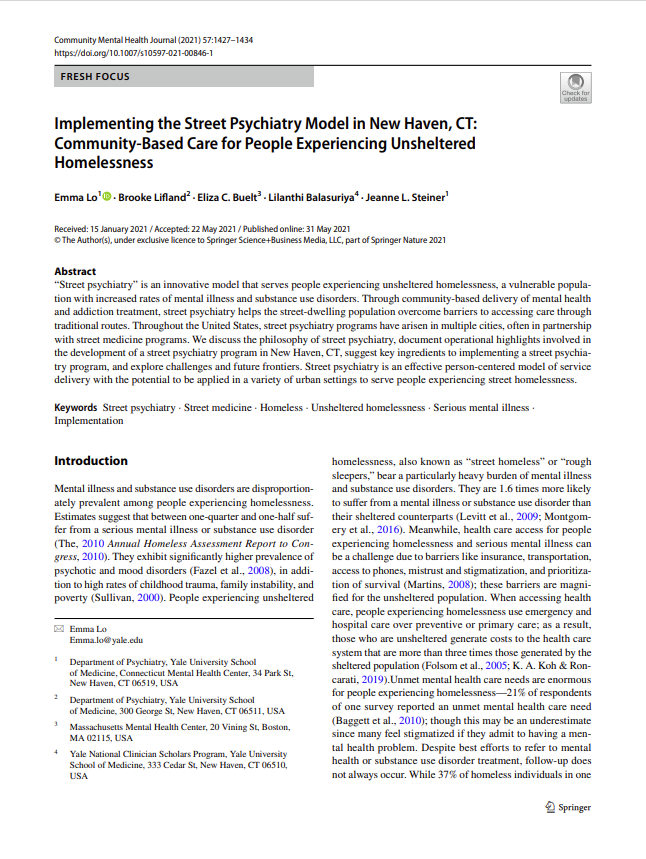Headline
A novel street psychiatry program offers essential mental health support to unsheltered individuals experiencing homelessness.
Context
Mental illness and substance use disorders are a critical health concern among people experiencing homelessness, with approximately 25 to 50 percent of this population having a serious mental illness or substance use disorder. These individuals often face barriers to accessing health care, including insurance, transportation, stigma, and prioritization of survival over health care.
Consequently, unmet mental health care needs are substantial among this population. An emerging approach to address these unmet needs is "street psychiatry," which focuses on delivering mental health and addiction services to unsheltered individuals experiencing homelessness where they are, such as under bridges, in parks, or encampments. Street psychiatry aims to engage individuals who have not accessed mental health treatment before and includes clinical staff capable of providing psychiatric diagnosis and treatment.
Findings
In this article, the authors provide an overview of a street psychiatry program in New Haven, Connecticut, including the process and timeline for program implementation. The program was launched in 2019 and services were dispatched to various communities. The core team included a program manager, a recovery coach with lived experience, a clinical social worker, a vocational specialist, and a psychiatrist. While the team received referrals from both inpatient and outpatient providers, the majority of referrals came from direct outreach rounds of individuals in the neighborhoods served. A large proportion of people (35.6 percent) were not ready for treatment on initial contact, but the team would continue to engage them in subsequent visits by providing resources, such as food and referrals to community-based agencies or health clinics. A small portion of individuals served required intensive services from the team, and occasionally, emergency medical or psychiatric evaluations were required by a mobile crisis team.
Takeaways
The article highlights the value of street psychiatry as a novel and innovative approach to address the mental health needs of unsheltered individuals. Key factors that contributed to the successful implementation of the program include consistent outreach, robust collaboration with the local community and other stakeholders, relying on an integrated care model to build the core team, using crisis-response resources as needed, and networking with other street medicine programs.

